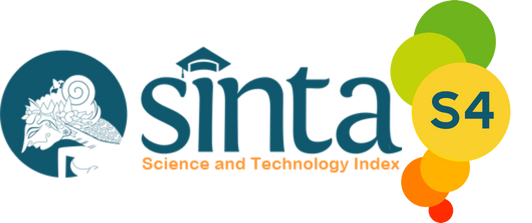Pembelajaran IPA Berbasis Lingkungan vs Konvensional: Studi Komparatif Pemahaman Konsep Benda Siswa Kelas IV
Analisis perbandingan hasil belajar siswa berbasis lingkungan dan konvensional
DOI:
https://doi.org/10.52434/jkpi.v5i2.42997Abstract
This study aims to analyze the effectiveness differences between environment-based learning and conventional learning in improving elementary school students’ understanding of objects and their functions. The research was motivated by the low conceptual understanding of students in science subjects when teachers still predominantly use lecture methods and textbooks. The research method employed was a quasi-experimental design with a pretest-posttest control group design. The sample consisted of 54 fourth-grade students elementary schools in North Lampung, selected using purposive sampling. The experimental group (n=27) received environment-based learning by utilizing real objects around the school such as leaves, stones, water, and daily-use materials to construct understanding. Meanwhile, the control group (n=27) received conventional learning through lectures and textbooks. Research instruments included a validated concept comprehension test and student activity observation sheets. Data were analyzed using an independent t-test with a significance level of 5% (α = 0.05). The findings revealed a significant difference between the two groups. The experimental group’s posttest average reached 86,59 with an N-gain of 0.65 (moderate-high category), while the control group achieved an average of 74,18 with an N-gain of 0.33 (low-moderate category). The t-test showed p < 0.05, indicating that environment-based learning was more effective than conventional learning in improving students’ understanding of objects and their functions. These findings are consistent with prior studies emphasizing the importance of contextual and environmental approaches in science learning. In conclusion, environment-based learning not only enhances students’ cognitive outcomes but also fosters environmental awareness. The implication of this study is that elementary school teachers are encouraged to integrate environmental potential as a contextual and authentic learning resource.
Keywords: Environment-Based Learning,Conventional Learning, Object Concepts, Science Learning Outcomes.
Downloads
Published
Issue
Section
License

Ciptaan disebarluaskan di bawah Lisensi Creative Commons Atribusi-BerbagiSerupa 4.0 Internasional. Penulis yang menerbitkan dengan jurnal ini setuju dengan ketentuan berikut:
- Penulis mempertahankan hak cipta dan memberikan hak penerbitan pertama kepada jurnal dengan karya yang secara bersamaan dilisensikan di bawah Lisensi Attribution-ShareAlike 4.0 International (CC BY-SA 4.0) yang memungkinkan orang lain untuk membagikan karya tersebut dengan pengakuan kepenulisan karya dan publikasi awal dalam jurnal ini.
- Penulis dapat membuat pengaturan kontrak tambahan yang terpisah untuk distribusi non-eksklusif dari versi jurnal yang diterbitkan dari karya tersebut (misalnya, mengunggahnya ke repositori institusional atau menerbitkannya dalam buku), dengan pengakuan publikasi awal dalam jurnal ini.
- Penulis diizinkan dan didorong untuk memposting karya mereka secara online (misalnya, di repositori institusional atau di situs web mereka) sebelum dan selama proses pengiriman, karena hal ini dapat mengarah pada pertukaran yang produktif, serta sitasi yang lebih awal dan lebih besar dari karya yang diterbitkan (Lihat Efek Akses Terbuka).













